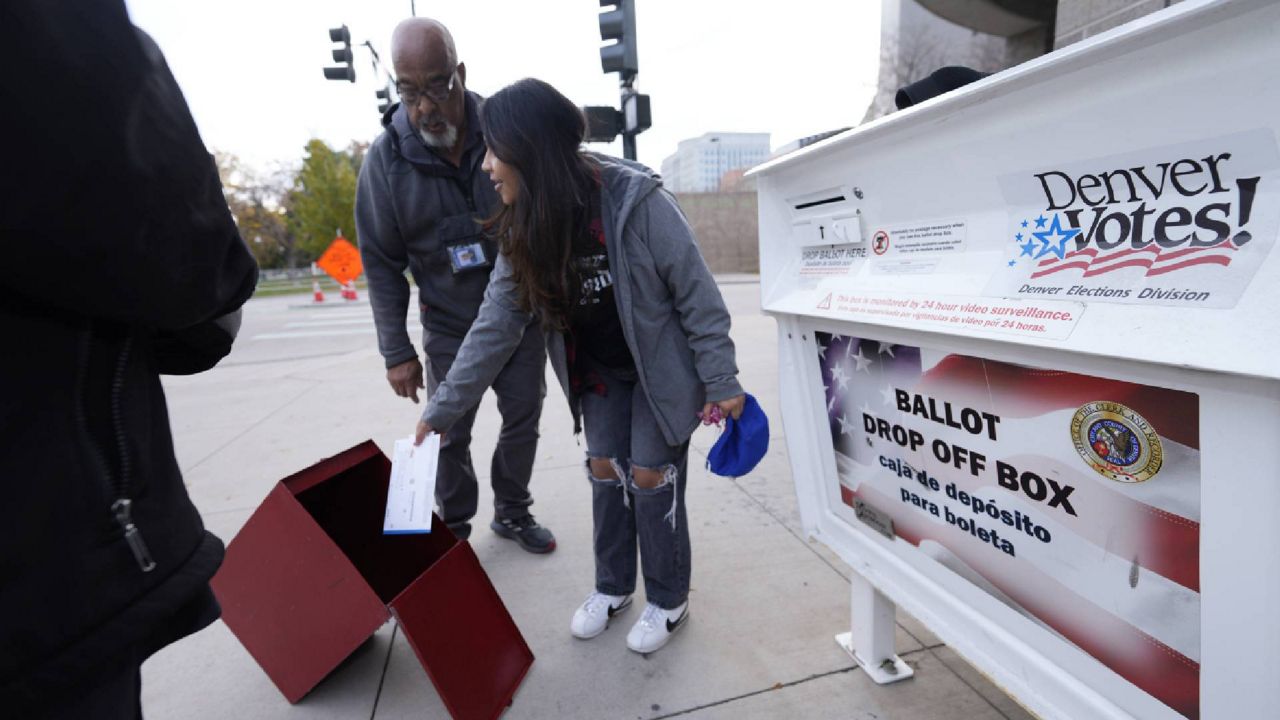Political experts on Wednesday repeated a familiar refrain about voter polling: They didn’t get it quite right.
Surveys of voters across the country indicated a wide victory for Republicans that didn’t materialize Tuesday night and Wednesday morning as the votes were counted. Instead, they notched more modest wins, flipping some key Democratic seats but without dominating most toss-up races, as some had predicted.
“Polling is not working,” said Carolyn Gallagher, senior associate dean of American University’s School of International Service. “The question is: Who are we not capturing in the polls, and what do they think?”
Gallagher said one key group that may not have been surveyed correctly are Trump voters, people who voted for him in 2016 and 2020.
“Many of them are people that weren't sort of super involved in elections before that,” she said.
Other groups that may not have been accurately captured in polling were Gen Z and younger millennial voters, who largely showed up for Democrats.
“One thing I know already,” wrote pollster John Della Volpe on Twitter about data from a CNN exit poll. “If not for voters under 30 ... tonight WOULD have been a Red Wave.”
The poll showed voters younger than 45 years old went for Democrats, while voters under 30 favored them by nearly 30%. Voters over 45 tilted toward Republicans.
“I have lost all confidence in polling, partly because the question was ‘Who's missing?’ Young people,” said Sam Fulwood, a public policy analyst and dean of American University’s School of Communication. “We saw unusually high turnout of young people.”
Fulwood said pollsters should reassess their methods, like questioning voters by phone.
“Most polls are done with phone calls. Young people do not answer their telephones, so those people would be missed in any kind of polling in a modern era.”
In the most heartening news for Democrats, John Fetterman flipped Pennsylvania’s Republican-controlled Senate seat that’s key to the party’s hopes of maintaining control of the chamber. But Republican Sen. Ron Johnson of Wisconsin won reelection, raising the stakes of races that were too early to call.
In the House, Democrats kept seats in districts from Virginia to Kansas to Rhode Island, while many districts in states like New York and California had not been called. But Republicans were also notching victories, including toppling House Democratic campaign chief Sean Patrick Maloney of New York.
Analysts with Sabato’s Crystal Ball at the University of Virginia predicted Republicans would gain a seat in the Senate and about 24 seats in the House. But current results point to smaller gains for the GOP.
J. Miles Coleman, one of those analysts, told Spectrum News he’s interested in the “post-mortem” analysis of the polls.
One issue is who pays for and publishes the surveys; he said some surveys in the lead-up to Tuesday may have been designed to make Republicans look better than reality.
“There was all of this talk of these kind of deep blue seats and districts coming into play,” he said, giving Washington state’s Senate race as an example. “Most of the polls recently that look good for Republicans and a lot of these key races were released by Republican pollsters.”
He also said analysts like him were trying to incorporate lessons from previous elections, like not giving too much weight to Democrats, which surveys did in 2016 with Hillary Clinton.
“I think in forecasting, we're always fighting yesterday's war,” he said. “That's something we sort of baked into our reasoning when we put out our forecast.”
“And it ends up overestimating the Republicans. So that's how stuff works sometimes,” he chuckled.
The Associated Press contributed to this report.



